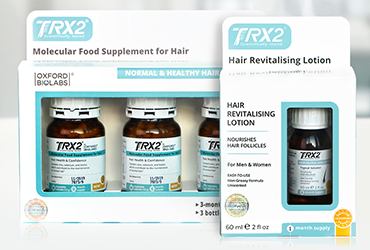Don’t you just hate those frequent bouts of grinding insomnia that leave you low on energy and cranky all day? Sleep is as essential as the air we breathe. It allows our bodies to repair and get ready for the next day. It also helps prevent excess weight gain, heart disease, and illnesses.
Yet insomnia affects as much as 35% of the adult population. Blame it on stress, poor sleeping habits, anxiety, worry, physical illnesses, pain, or medication, among other life’s challenges. Here’s what you can do to ramp up your good night’s sleep, from forming a sleep routine to finding ways of going back to slumber whenever you awake at night.
Optimise Your Sleep Schedule
Our bodies perform optimally under a familiar schedule. We have a natural clock that scientists call the “circadian rhythm”. When you sleep and wake up at consistent times, you feel more refreshed, energised, and focused during the day.
The contrary is true, even if you get the same amount of sleep but alter the cycle by an hour or two. For maximum sleep relaxation, try to:
- Go to bed and wake up at the same time every day. Your body will learn to set an internal clock, much like an alarm. In fact, you won’t need one to wake up anymore.
- Decide on a bedtime when you are usually tired, so you don’t lose time tossing and turning in bed.
- Don’t sleep in. If you have to compensate for going to bed late, consider a daytime nap instead of sleeping in. Also, avoid sleeping all day when you are off work.
- Adjust your schedule gradually – like 1 to 2 hours a night – whenever you have to change your night time routine, so your body has time to adapt to the changes.
Control Your Light Exposure
Your body naturally secretes melatonin, a hormone that takes part in regulating your sleep-wake cycle. Your body secretes more of it when it’s dark and less when it’s bright. Here’s what you want to do:
- Get all the natural light you can when you are active, especially from the start of your day. It will help you wake up and stay alert. You don’t have to busk. Breakfast by the window or a walk to get coffee will do just fine. You could also let more natural light into your home or workplace. Studies link it to longer, more peaceful sleep and less time drifting away.
- Reduce exposure to light during the evening and before bed in readiness for sleep. Not so fun fact: blue light, which electronics emit, is the worst when it comes to relaxing and sleeping. Since ditching your phone for hours before bedtime might not be agreeable, consider getting glasses that filter blue light, downloading apps for blocking blue light on your devices, or ending screen time at least 2 hours before lights out.
Create a Sleep-Inducing Environment
Among the key tips for good sleep is setting up a bedroom that is ideal for sleeping. It should provide a comfortable and relaxing environment, much so if you are fighting insomnia. Here are some pointers:
- Use a quality mattress, pillow, and beddings
- Install blackout curtains to block light from outside
- Keep noise on the low. If you are in a noisy neighbourhood, try masking the sound with earplugs, a fan, a sound machine, or relaxing sounds for sleep.
- Keep it cool, literally. Research suggests that maintaining a cooler temperature of around 20 degrees is ideal for sleep.
- Avoid flickering lights because they may disrupt your sleep.
Pay Attention to Your Foods and Drinks towards Bedtime
Going hungry to bed is just as bad as going in stuffed. Don’t eat too late either. The discomfort won’t let you sleep easy. What’s more, stimulants such as nicotine and caffeine are a bad idea a few hours before retiring.
Besides, don’t smoke or use alcohol, although some people confess to not falling asleep unless they smoke. As for alcohol, it can make you sleepy at first but is known to cause disruption later in the night.
Increase Physical Activity during the Day
People who exercise consistently get better sleep health and feel less sleepy during the day. When engaging in physical activity, remember:
- The most vigorous, safe exercise produces the most sleep benefits – although even a 10-minute walk a day could produce significant results.
- The effect may take a few months to fully manifest. You have to be patient and build an exercise routine that sticks.
- Avoid intensive exercise before bed because it may interfere with your ability to wind down effectively and start feeling sleepy.
Craft a Sleep Promoting Pre-Bed Routine
The problem with insomnia often starts long before you get under the covers. Poor pre-bed habits may play the biggest role in your insomnia and other sleep issues. Try maintaining the following habits to signal your body that bedtime is approaching:
- Wind down and clear your head at least 30 minutes before lights out.
- Dim the lights
- Put away your devices at least 30 minutes before sleeping
Take a Supplement
Talk to your doctor about taking a melatonin supplement. It is a popular sleep aid that’s also useful when you are trying to adjust to a new time zone. An immune-supporting supplement is not a bad idea either. It will help you stay healthy, so you don’t have to put up with illness-related insomnia.
Find Ways to Go Back to Sleep
In case you awake in the middle of your slumber, you should be armed with a few natural ways to fall asleep again. Try this:
- Stay out of your head by managing your worries, not stressing over your insomnia, and limiting the amount of information you are processing. Experts also recommend breathing exercises.
- Target relaxation rather than sleep. Look into techniques to fall asleep such as meditation, visualisation, and progressive muscle relaxation.
- Keep the lights dimmed. Sometimes you have to go to the bathroom, maybe grab a midnight snack (not a good habit, by the way), or put your phone on silent because it just woke you up. If you have to turn the lights on, make sure they are not too bright or your body might think it’s time to start the day.
Insomnia and sleep apnoea often subside when we change our daily habits and train our bodies to stick to a precise cycle. An occasional sleepless night gets everyone, especially with increased age and life-defining events. However, when it becomes persistent, you should consult a specialist to help you get to the bottom of the issue.


























